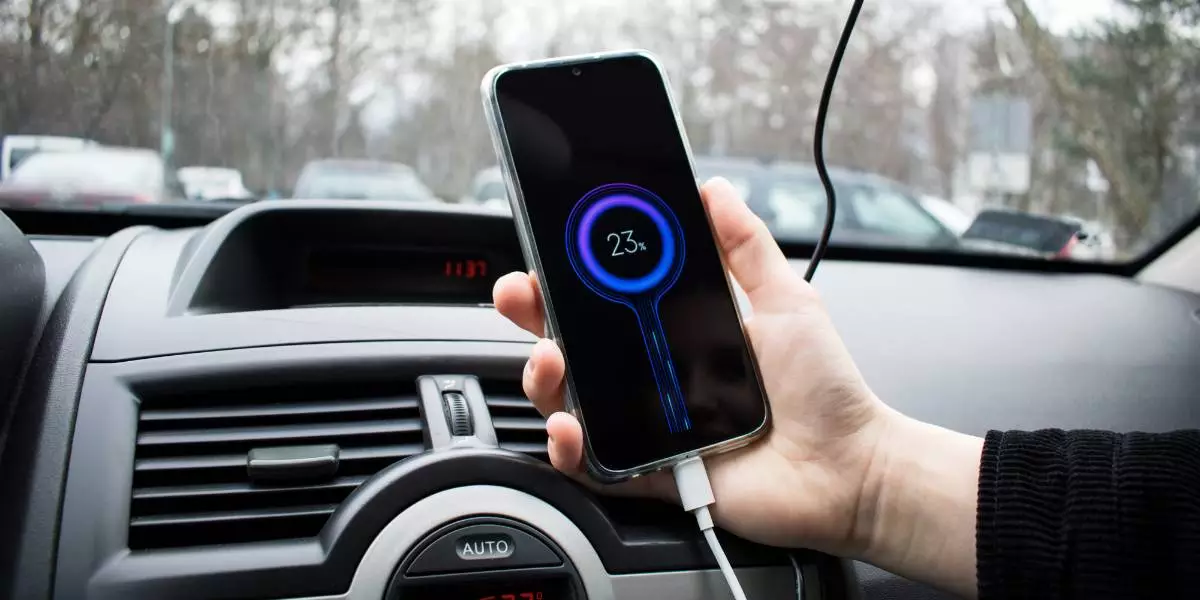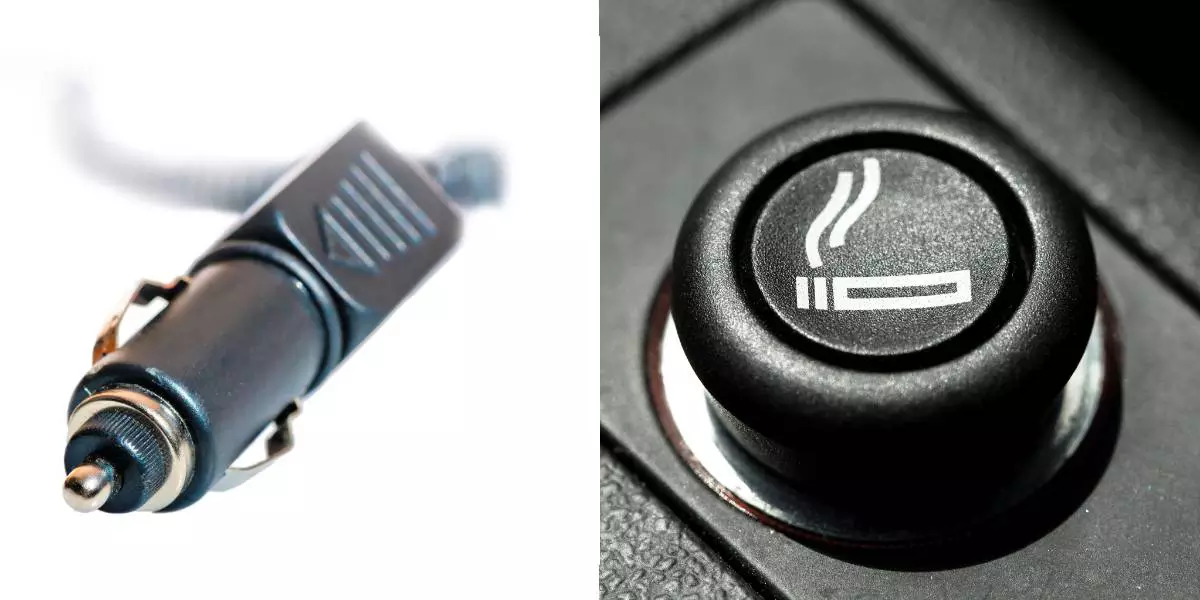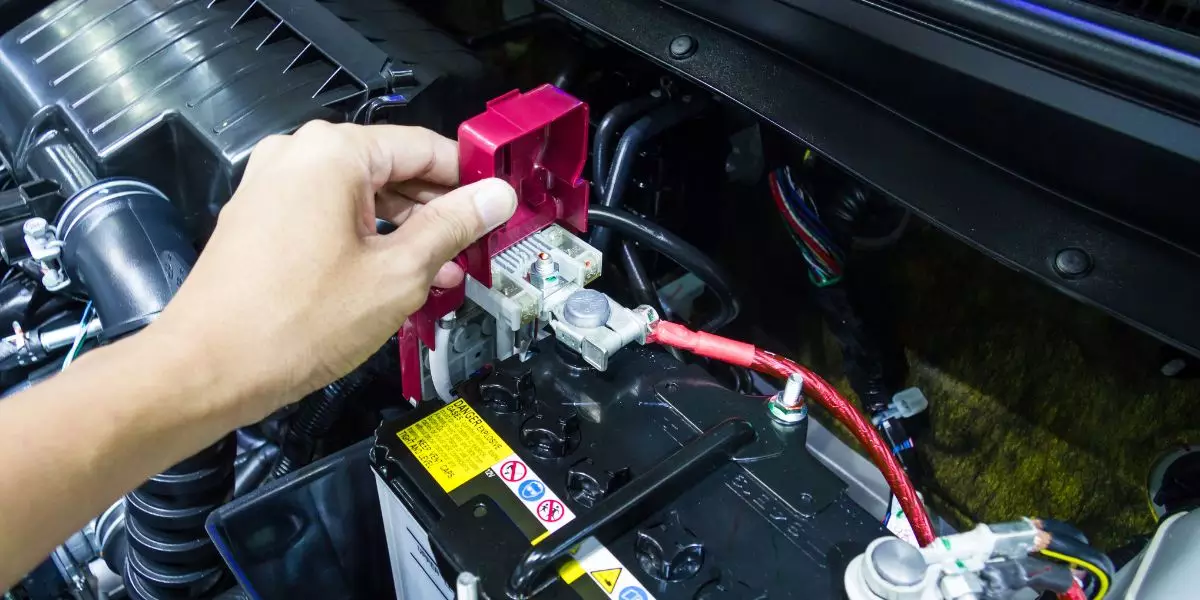Imagine this scenario: you’re on a long road trip, relying on your trusty smartphone for navigation, music, and entertainment. But as you plug your phone into the car charger, a sudden worry washes over you – could charging your phone drain the car battery? In this article, we’ll explore this common concern and discover whether or not your phone has the power to leave you stranded on the side of the road.
Understanding Battery Drainage
What Causes Battery Drainage?
Battery drainage occurs when the energy stored in a battery is depleted, resulting in a loss of power. There are several factors that can cause battery drainage, such as leaving lights or accessories on when the vehicle is not running, a faulty charging system, or a weak battery. It is important to understand these causes in order to prevent unnecessary battery drain.
Impact of Electronics on Battery
Many modern vehicles are equipped with various electronic systems, such as infotainment systems, navigation systems, and power accessories. These systems consume a significant amount of power from the vehicle’s battery.
Leaving electronic devices plugged in or charging them can also contribute to battery drainage. It is crucial to be aware of the power consumption of these electronics in order to avoid draining the battery.
Importance of Charging Systems
The charging system of a vehicle is responsible for replenishing the energy in the battery while the engine is running. It consists of an alternator, a voltage regulator, and a battery. The alternator generates electricity to power the vehicle’s electrical systems and also charges the battery.
Without a properly functioning charging system, the battery may not receive enough power, leading to battery drainage. Regular maintenance and inspections of the charging system are essential to ensure optimal battery performance.
Relationship Between Car Battery and Phone Charging
Power Output of Car Charging Ports
Car charging ports, commonly known as cigarette lighter sockets or auxiliary power outlets, provide power for various devices, including phone chargers. These ports typically have a voltage output of 12 volts and are designed to provide enough power for charging small electronic devices.
Power Requirements of Phone Charging
When charging a phone, it is important to consider the power requirements of the device. Most smartphones require a voltage of 5 volts to charge properly. Therefore, using a car charging port with a voltage output of 12 volts is compatible with the charging needs of most phones.
Impact of Phone Charging on Car Battery
Charging a phone through a car’s charging port has minimal impact on the vehicle’s battery. This is because the car’s charging system is designed to supply power to both the vehicle’s electrical systems and charge the battery simultaneously.
The amount of power required to charge a phone is relatively low compared to the overall power capacity of the car’s charging system. Therefore, the impact on the car battery is negligible.
Factors Affecting Battery Drainage
Car Battery Health and Capacity
The health and capacity of the car’s battery play a crucial role in determining battery drainage. An old or weak battery may not hold a charge effectively, leading to faster drainage. Regular maintenance, such as checking the battery’s health and capacity, can help prevent battery drain caused by a weak battery.
Phone Battery Health and Charging Efficiency
The health and efficiency of the phone’s battery also affect battery drainage. As a phone’s battery ages, it may not hold a charge as well as when it was new. This can result in faster drainage when charging the phone. Additionally, using a faulty or incompatible charger can decrease the efficiency of the charging process and potentially lead to increased battery drain.
Duration and Frequency of Phone Charging
The duration and frequency of phone charging can also impact battery drainage. Charging a phone for long periods of time or repeatedly throughout the day can put additional strain on the car’s charging system and potentially lead to faster battery drain. It is advisable to charge the phone only when necessary and to avoid leaving it connected to the charger for extended periods without need.
Safety Measures to Prevent Battery Drainage
Choosing a Safe Charger
Selecting a safe charger is crucial to prevent battery drain and ensure the longevity of both the phone and car battery. It is recommended to use the charger provided by the phone manufacturer or a reputable brand that is specifically designed for the phone model. Using counterfeit or low-quality chargers can pose risks to both the phone and the car battery.
Monitoring Charging Status
Monitoring the charging status of the phone is essential to prevent overcharging and unnecessary battery drain. Most smartphones have built-in mechanisms that automatically stop charging when the battery reaches its full capacity. However, it is still important to unplug the phone once it is fully charged to avoid any potential drain on the car battery.
Parked Car vs. Running Engine
When charging a phone in a parked car, it is important to consider the impact on the battery. If the engine is not running, the car’s charging system relies solely on the battery. In this scenario, charging a phone for an extended period of time can potentially drain the battery. It is advisable to either limit the duration of phone charging or periodically start the engine to maintain the battery’s charge.
Common Misconceptions
The Myth of Phone Charging Ruining Car Battery
There is a common misconception that charging a phone through a car’s charging port can ruin the car battery. However, as discussed earlier, the impact of phone charging on the car battery is minimal. As long as the car’s charging system is functioning properly and the phone is charged using a safe and compatible charger, there is no risk of damaging the car battery.
Capacity of Car Battery vs. Phone Battery
Another misconception is comparing the capacity of a car battery to that of a phone battery. Car batteries are designed to provide a large amount of power to start the engine and power the vehicle’s electrical systems.
On the other hand, phone batteries have a much smaller capacity as they are intended to power a portable device. Therefore, the power requirements and drain on the car battery caused by phone charging are insignificant compared to the overall capacity of the car battery.
Frequently Asked Questions
Q: Can charging your phone drain your car battery when the car is turned off?
A: Yes, charging your phone can drain your car battery if you leave it plugged in for an extended period of time, especially if your car is turned off. However when your car battery is in good health and fully charged it would take a long time to fully drain your car battery.
Q: Is it safe to charge your phone in the car?
A: Yes, it is generally safe to charge your phone in the car. However, it is important to make sure you are using a car charger that is compatible with your phone and to avoid leaving it plugged in for too long.
Q: Does charging your phone while driving affect battery life?
A: Charging your phone while driving does not significantly affect its battery life. However, it is always a good idea to use a high-quality car charger to ensure a steady and safe charge.
Q: Can charging your phone kill your car battery?
A: While charging your phone can drain your car battery over time, it is unlikely to kill your car battery unless you leave it plugged in for an extended period of time without the car running.
Q: Can I charge my phone in an electric car?
A: Yes, you can charge your phone in an electric car. Most electric cars have USB ports or charging ports that you can use to charge your phone while driving.
Q: Can I charge my phone using the cigarette lighter in my car?
A: Yes, you can charge your phone using the cigarette lighter in your car. Many car chargers are designed to be plugged into the cigarette lighter and provide power to charge your phone.
Q: How much power comes from the USB port in a car?
A: The amount of power that comes from the USB port in a car can vary. It depends on the specific car model and the capabilities of the USB port. However, most USB ports in cars provide enough power to charge a phone.
Q: Do I need to charge my phone in a gas-powered car?
A: If you have a fully charged phone battery, you may not need to charge your phone in a gas-powered car. However, if your phone battery is low and you need to use your phone while driving, you may want to charge it to ensure you have enough battery power.
Q: Can I safely charge my phone while my car is turned off?
A: It is generally safe to charge your phone while your car is turned off. However, it is important to monitor the battery level of your car and avoid leaving your phone plugged in for an extended period of time to prevent draining the car battery.
Q: Will charging my phone in the car overcharge the battery?
A: Charging your phone in the car will not overcharge the battery if you are using a proper car charger. Most modern smartphones are designed to stop charging once the battery is fully charged, preventing overcharging.
Conclusion
In conclusion, charging your phone through your car’s charging port does not significantly drain the car battery. The car’s charging system is designed to supply power to both the vehicle’s electrical systems and charge the battery simultaneously. However, it is important to consider factors such as the health and capacity of both the car and phone batteries, as well as the duration and frequency of phone charging.
By following safety measures and understanding the relationship between the car battery and phone charging, you can ensure minimal impact on the car battery’s performance and prevent unnecessary battery drain.



